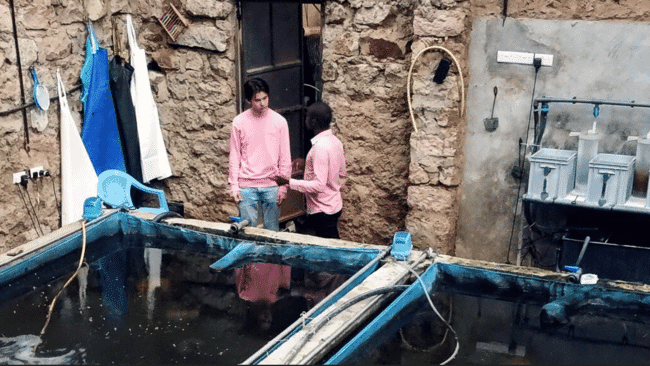
© Samaky Poa
Called Samaki Poa, meaning “cool fish” in Swahili, it has been funded by the Norwegian Agency for Development Cooperation (Norad).
Collaboratively, tailor-made digital and vocational training curricula will be developed, aimed at the improvement of access to knowledge in the aquaculture sector. The e-curriculum, consisting of animated videos, covering all relevant topics for tilapia and catfish farming, will be freely available on the newly launched website www.howtodoaquaculture.com.
The aim is to reach over 10,000 current and aspiring fish farmers throughout the continent and specific attention will be given to enable women and youth to participate.
To make the content accessible even for those without internet access, five Tunga Nutrition farm supply hubs will be upgraded to allow for on-site training.
Besides digital training, there will also be on-site vocational training. Within the project, a new Aquaculture Academy will be established in Jinja, Uganda, following the success of the Aquaculture Academy in Kenya. In both countries, aquaculture specialists from the consortium will train over 1,200 fish farmers on the most important dimensions of the trade.
"We are elated with the skillset brought together in this consortium. From fish feeds, hatchery, farming, training and digital content creations... all necessary expertise is brought together for maximum sector benefit. We are thankful to Norad for making this possible,” said Wouter van Vliet, from project coordinator Larive International, in a press release.
The project’s focus on the knowledge gap is necessary because the difference between the needs of the private aquaculture sector and the current labour force is considerable. It is very difficult to find well-trained fish farm staff with practical knowledge. The lack thereof is a hindrance to the success of fish farms across the EAC region.
Many graduates lack sufficient practical expertise directly after graduation. Similarly, farmers in the field also have limited resources available to them to find reliable information suited to the East African context. Typically, YouTube is the source of (unverified) information. Samaki Poa aims to change all this, filling the knowledge gap and providing the skillset critical for the future growth of fish farming in East Africa.
With the establishment of a new hatchery in Jinja, Uganda, and its vocational and digital training efforts Samaki Poa focuses to impact 7,500 households and create 1,250 jobs throughout the value chain in Kenya, Rwanda, Tanzania and Uganda.




